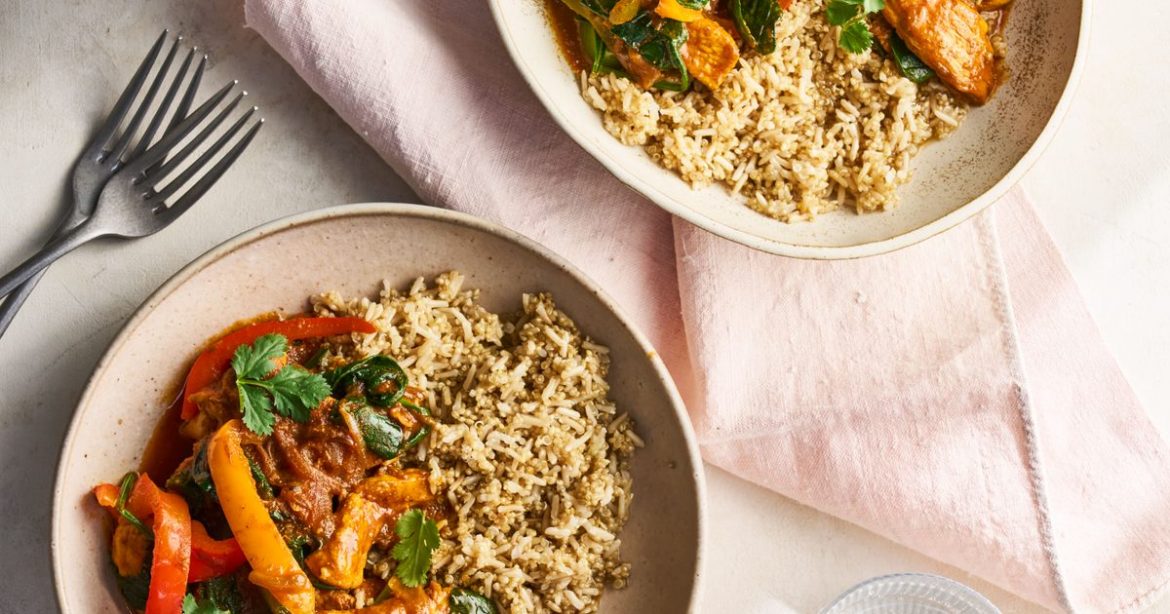Healthy fats
Increase mono- and poly-unsaturated ‘good’ fats in your diet. Use olive oil and rapeseed oil in cooking. Add a portion of oily fish such as salmon or mackerel (high in omega-3) to your diet once a week. Nuts and seeds such as walnuts, flaxseed and chia are also high in good fats. There is considerable evidence that omega-3 reduces the risk of heart disease. Do eat these in moderation as fats are high in calories and can cause weight gain.
Prebiotics and probiotics
Prebiotic foods such as onions, garlic or spinach and probiotic foods such as kefir or kimchi can help to support gut health, which has been linked to better blood sugar control.
Fruits and vegetables
It is a myth that diabetics should avoid fruits. Yes, fruits contain natural sugar; however, like vegetables, they also contain vitamins, minerals and fibre and are important for a balanced diet. It’s always better to eat the whole fruit rather than drinking fruit juice.
Foods to limit
Refined carbohydrates
These spike blood sugar levels rapidly – white bread, pasta and sugary snacks are among the culprits.
Added sugars
Limit sugary drinks and sweets, and look out for processed foods with hidden sugars which also cause spikes in blood sugar levels.
Saturated and trans fats
These are found in processed snacks and fried foods like crisps. These worsen insulin resistance and increase the risk of heart disease.
Salty food
Processed and packaged foods often contain high levels of salt that can elevate blood pressure, a common issue in diabetics.
You do not need to exclude these foods from your diet completely; it’s about small, sustainable changes that you can maintain long-term.
What else can I do?
Exercise regularly
Walking, cycling or strength-training improves insulin sensitivity and supports weight management.
Prioritise sleep
Seven to eight hours of quality sleep helps regulate hunger hormones and improves glucose metabolism.
Manage stress
Encourage mindfulness, yoga or hobbies to lower cortisol levels, which can spike blood sugar.
Routine check-ups
If you have been diagnosed as diabetic, then it is important to have regular check-ups and monitoring with your doctor.
Read more about healthy eating…
Is your loaf of bread as healthy as you think?
Nutritionists share their favourite healthy budget ingredients
Eat well for…immunity
Eat well for…gut health
Eat well to…boost your brain power
Chintal is a long-serving GP for the NHS as well as a food content creator, cookbook author and our regular contributor. She has a passion for nutrition and lifestyle medicine, and aims to help people approach cooking and eating in a way that supports overall well-being. @drchintalskitchen

